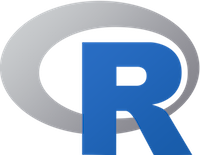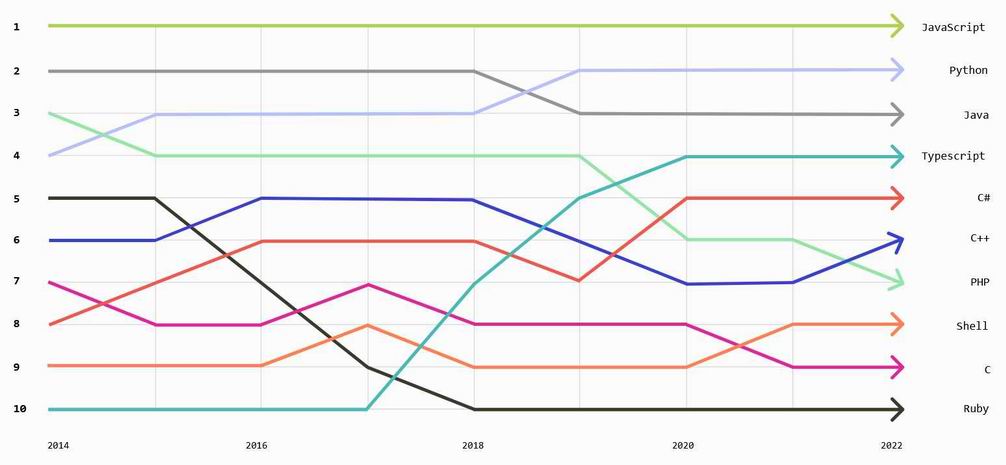Machine Learning in JavaScript
Traditionally, Machine Learning applications are using R or Python.
But JavaScript has a great future as a Machine Learning language:
- JavaScript is well known. All developers can use it.
- Security is built in. JavaScript cannot access your files.
- JavaScript is faster than Python.
- JavaScript can use hardware acceleration.
- JavaScript runs in the browser
JavaScript is Good for Machine Learning
Machine Learning can be math-heavy. The nature of neural networks is highly technical, and the jargon that goes along with it tends to scare people away.
This is where JavaScript comes to help, with easy to understand software to simplifying the process of creating and training neural networks.
With new Machone Learning libraries, JavaScript developers can add Machine Learning and Artificial Intelligence to web applications.
WebGL API
WebGL is a JavaScript API for rendering 2d and 3D graphics in any browser.
WebGL can run on both integrated and standalone graphic cards in any PC.
WebGL brings 3D graphics to the web browser. Major browser vendors Apple (Safari), Google (Chrome), Microsoft (Edge), and Mozilla (Firefox) are members of the WebGL Working Group.
JavaScript Machine Learning Libraries
Machine Learning in the Browser means:
- Machine Learning in JavaScript
- Machine Learning for the Web
- Machine Learning for Everyone
- Machine Learning on more Platforms
Advantages:
- Easy to use. Nothing to install.
- Powerful graphics. Browsers support WebGL.
- Better privacy. Data can stay on the client.
- More platforms. JavaScript runs on mobile devices.
Math.js
Math.js is an extensive math library for JavaScript and Node.js.
Math.js is powerful and easy to use. It comes with a large set of built-in functions, a flexible expression parser, and solutions to work with many data types like numbers, big numbers, complex numbers, fractions, units, arrays, and matrices.
Brain.js
Brain.js is a JavaScript library that makes it easy to understand Neural Networks because it hides the complexity of the mathematics.
Brain.js is simple to use. You do not need to know neural networks in details to work with Brain.js.
Brain.js provides multiple neural network implementations as different neural nets can be trained to do different things well.
ml5.js
ml5.js is trying to make machine learning more accessible to a wider audience.
The ml5 team is working to wrap machine learning functionality in friendlier ways.
The example below uses only three lines of code to classify an image:
<img id="image" src="pic1.jpg" width="100%">
<script>
const classifier = ml5.imageClassifier('MobileNet');
classifier.classify(document.getElementById("image"), gotResult);
function gotResult(error, results) { ... }
</script>
Try it Yourself »
Try to substitute "pic1.jpg" with "pic2.jpg" and "pic3.jpg".
TensorFlow
TensorFlow Playground is a web application written in d3.js.
With TensorFlow Playground, you can learn about Neural Networks (NN) without a math.
In your own Web Browser you can create a Neural Network and see the result.
TensorFlow.js was previously called Tf.js and Deeplearn.js.
Plotting in the Browser
Here is a list of some JavaScript libraries to use for both Machine Learning graphs and other HTML charts:
Plotting Equations
Plotting Values
Machine Learning Languages
Programming languages involved in Machine Learning and Artificial Intelligence are:
- LISP
- R
- Python
- C++
- Java
- JavaScript
- SQL
LISP
LISP is the second-oldest programming language in the world (1958), one year younger than Fortran (1957).
The term Artificial Intelligence was made up by John McCarthy who invented LISP.
LISP was founded on the theory of Recursive Functions (self modifying functions), and this is very suitable for Machine Learning programs where "self-learning" is an important part of the program.

The R Language
R is a programming language for Graphics and Statistical computing.
R is supported by the R Foundation for Statistical Computing.
R comes with a wide set of statistical and graphical techniques for:
- Linear Modeling
- Nonlinear Modeling
- Statistical Tests
- Time-series Analysis
- Classification
- Clustering

Python
Python is a general-purpose coding language. It can be used for all types of programming and software development.
Python is typically used for server development, like building web apps for web servers.
Python is also typically used in Data Science.
An advantage for using Python is that it comes with some very suitable libraries:
- NumPy (Library for working with Arrays)
- SciPy (Library for Statistical Science)
- Matplotlib (Graph Plotting Library)
- NLTK (Natural Language Toolkit)
- TensorFlow (Machine Learning)

C++
C++ holds the title: "The world's fastest programming language".
Because of the speed, C++ is a preferred language when programming Computer Games.
It provides faster execution and has less response time which is applied in search engines and development of computer games.
Google uses C++ in Artificial Intelligence and Machine Learning programs for SEO (Search Engine Optimization).
SHARK is a superfast C++ library with support for supervised learning algorithms, linear regression, neural networks, and clustering.
MLPACK is also a superfast machine learning library for C++.
Java
Java is another general-purpose coding language that can be used for all types of software development.
For Machine Learning, Java is mostly used to create algorithms, and neural networks.
SQL
SQL (Structured Query Language) is the most popular language for managing data.
Knowledge of SQL databases, tables, and queries helps data scientists when dealing with data.
SQL is very convenient for storing, manipulating, and retrieving data in databases.
The most popular programming languages (2014 - 2022)

Anecdote
— What is the name of a program that can recognize faces?
— I don't know!
— Facebook!

